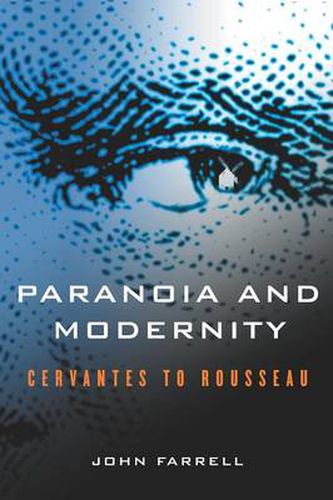Paranoia and Modernity: Cervantes to Rousseau
John Farrell

Paranoia and Modernity: Cervantes to Rousseau
John Farrell
Paranoia, suspicion, and control have preoccupied key Western intellectuals since the sixteenth century. Paranoia is a dominant concern in modern literature, and its peculiar constellation of symptoms - grandiosity, suspicion, unfounded hostility, delusions of persecution and conspiracy - are nearly obligatory psychological components of the modern hero. How did paranoia come to the center of modern moral and intellectual consciousness? In Paranoia and Modernity, John Farrell brings literary criticism, psychology, and intellectual history to the attempt at an answer. He demonstrates the connection between paranoia and the long history of struggles over the question of agency - the extent to which we are free to act and responsible for our actions. He addresses a wide range of major authors from the late Middle Ages to the eighteenth century, among them Luther, Bacon, Cervantes, Descartes, Hobbes, Pascal, La Rochefoucauld, Swift, and Rousseau. Farrell shows how differently paranoid psychology looks at different historical junctures with different models of agency, and in the epilogue, Paranoia and Postmodernism, he draws the implications for recent critical debates in the humanities.
This item is not currently in-stock. It can be ordered online and is expected to ship in approx 2 weeks
Our stock data is updated periodically, and availability may change throughout the day for in-demand items. Please call the relevant shop for the most current stock information. Prices are subject to change without notice.
Sign in or become a Readings Member to add this title to a wishlist.


